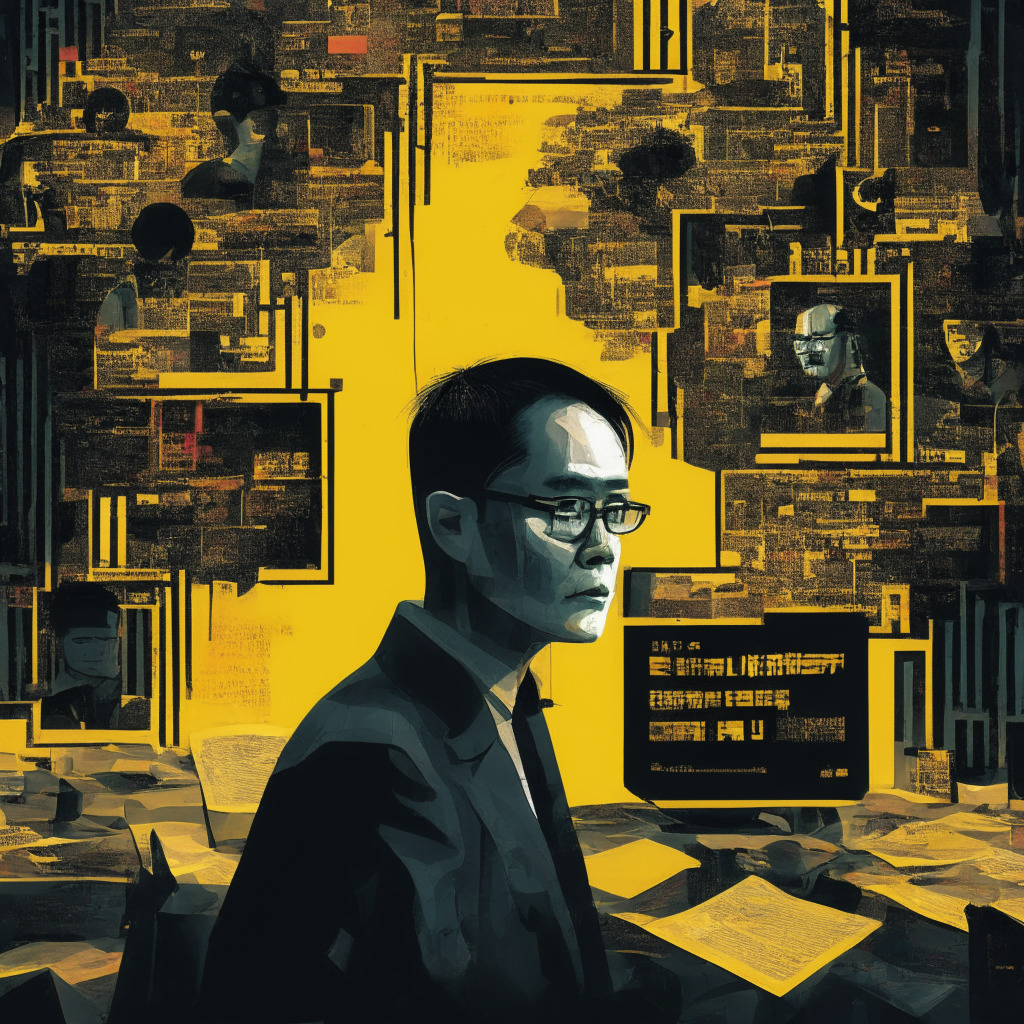In a surprising turn of events, Binance, the world’s largest cryptocurrency exchange, has claimed that someone used ChatGPT, an AI-powered language model, to falsely present its CEO, Changpeng Zhao, as an official in the Chinese Communist Party. This case has raised concerns among experts about the potential misuse of AI in journalism, with some pointing out that such technology could be employed to generate fake news and manipulate public opinion.
According to Binance, an undisclosed party used ChatGPT to link Zhao with China’s Communist Party and allege his involvement in the development of a social media platform for the China National Petroleum Corporation, a state-owned oil and gas giant. Binance’s CSO, Patrick Hillmann, attempted to verify the information using the AI program but was unable to do so. He found that the ChatGPT query pointed to a fake LinkedIn page for Zhao as well as a now-defunct Forbes web page from 2018 suggesting his ties to the Communist Party. Binance described the allegations as “ludicrous” and highlighted that simple fact-checking would have debunked the claims.
The incident adds fuel to the ongoing debate among experts on the role of AI, particularly ChatGPT, in journalism. Charlie Beckett, a former BBC journalist and current director of an AI program at the London School of Economics, believes that the implementation of ChatGPT in journalism is difficult due to the need for human editing and fact-checking. Beckett asserts that newsrooms follow ethical guidelines and avoid publishing lies, which restricts the use of AI like ChatGPT without human oversight.
In addition to the false claims regarding the Chinese Communist Party, a recent Bloomberg article also falsely portrayed Binance’s CEO as a multi-billionaire with a fortune of over $28 billion. Zhao denied the claims, maintaining that his net worth is nowhere near the reported figures. He further debunked the Bloomberg article’s assertions that he viewed FTX, a now-bankrupt exchange, as a rival.
Overall, the events discussed highlight the potential threat that AI programs like ChatGPT can pose to journalism, especially when used to spread misinformation. It is important that news outlets prioritize fact-checking and human editing to maintain ethical journalism standards, thereby preventing the spread of false stories and ensuring public trust in news sources.
Source: CryptoPotato




